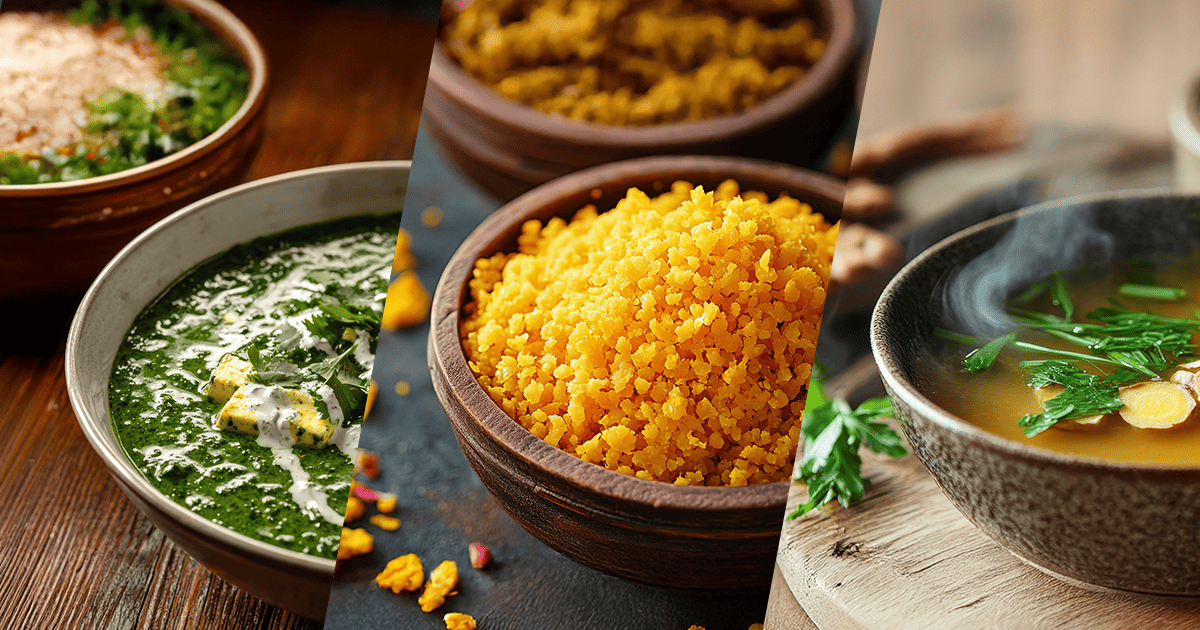
Greener Kitchens, Healthier Plates: Embracing Sustainability Through Cooking Oils
In this diversified world of the art of cooking, where flavors dances, and aromas entice, the selection of cooking oils is very important to orchestrating a beautiful blend. Beyond their flavor palette contributions, these kitchen oils play an important role in the health of the planet and, by extension, our well-being. In this detailed and comprehensive guide, we start on a journey through essential sustainable cooking oils, unfolding the layers of their ecological impact and transforming your kitchen into a hub of conscious, healthy, and flavorful choices.
Cooking oils are not mere ingredients; they are integral components that shape our meals and have far-reaching effects on our environment. As we dive into the world of sustainable choices, it is crucial to understand why these oils matter, transcending their culinary roles and digging deep into their environmental significance.
What is Sustainable Cooking
Sustainable cooking is concept that goes beyond the flavors on our plates to incorporate practices that respect and support the environment, biodiversity, and ethical farming.
At its core, sustainable cooking involves making conscious choices in ingredients, cooking methods, and sourcing to minimize the ecological footprint associated with our meals. It’s a commitment to understanding the journey of our food from farm to table, considering the environmental and social impact at every step.
From selecting locally sourced produce to going for eco-friendly cooking oils, sustainable cooking is a holistic approach that forms harmony between food preparation and responsible living.
Benefits of Sustainable Cooking
Other than it’s positive effects on environmental healing, sustainable cooking offers several benefits on one’s overall health. Let’s dig into what all it has to offer.
1. Reduced Risk of Medical Conditions:
Beyond its environmental impact, sustainable eating improves health. Focusing on local and seasonal produce, this approach offers a diverse range of flavorful and nutrient-rich foods.
The emphasis on nutritionally valuable, anti-inflammatory options translates to a lowered risk of conditions such as diabetes, cancer, and cardiovascular diseases. Sustainable cooking becomes a delicious journey that binds health and environmental conciousness.
2. Enhances Nutritional Value:
Sustainable cooking binds with more nutritious choices, focusing locally grown foods, plants, and a variety of food items. Consuming foods suited to local climatic conditions ensures higher nutritional value, freshness, and the absence of preservatives.
By incorporating this we contribute to healthy living while savoring the benefits of natural, minimally processed ingredients.
3. Facilitates Weight Loss Through Mindful Eating:
Sustainable eating practices, such as portion control and mindful consumption, contribute to weight loss. By consciously cooking required portions and going for fresh, locally sourced ingredients, we discover the simplicity of sustainable living.
Reducing the consumption of packaged and processed foods not only lessens one’s carbon footprint but also supports health goals like losing body fat, managing blood glucose levels, and controlling blood pressure.
Why Choose Sustainable Cooking Oils?
Every choice we make sends ripples into the world, and the kitchen is no exception. Let’s see the reasons why choosing sustainable cooking oils is a small yet impactful step towards a greener, healthier future.
1. Environmental Harmony:
Sustainable cooking oils are champions of biodiversity. By going for oils that uphold ecosystem health, you contribute to a world where agriculture works in synergy with nature, not against it.
2. A Lighter Carbon Footprint:
The carbon footprint of your culinary choices matters. Sustainable cooking oils take pride in eco-friendly processing methods, minimizing their impact on the planet. Choosing locally sourced oils further trims down the emissions associated with transportation.
3. Ethical Farming Practices:
When you choose sustainable oils, you’re endorsing fair trade practices. Picture this: fair wages, safe working conditions, and a commitment to community well-being. It’s not just about what’s on your plate but the positive impact resonating across farming communities.
4. Healthier You, Healthier Oils:
Sustainable cooking oils aren’t just environmentally conscious, they’re health-conscious too. The cold-pressed, unrefined methods they embrace ensure the retention of natural nutrients. Bid farewell to additives and pesticides, ushering in a new era of wholesome, nourishing meals.
Essential Sustainable Cooking Oils to Have in Your Kitchen
Extra Virgin Olive Oil
Extra virgin olive oil, when sourced organically, stands as a beacon of sustainability. While its popularity necessitates significant resource usage, opting for organic and fair-trade varieties ensures ethical cultivation practices. It is also undoubtedly one of the best cooking oils when it comes to health.
Drizzle extra virgin olive oil over a fresh Caprese salad, enhancing the flavors of ripe tomatoes, mozzarella, and basil. You can dig into the richness of the Mediterranean with a conscious twist, as this oil not only elevates your dishes but also supports eco-friendly practices, fostering a sense of connection to the earth.
Coconut Oil
The demand for coconut oil has reshaped landscapes, but choosing organic varieties mitigates its environmental impact. Hand-harvested coconuts and conscientious sourcing from smaller organic farms preserve ecosystems, making coconut oil a sustainable choice for your kitchen and the planet.
You can incorporate coconut by using it to sauté spices for a fragrant curry. Coconut oil is also popular in many parts of India for being the best healthy oil for Indian cooking. By understanding the complexities of its production, one can make choices that harmonize with nature.
Avocado Oil
Amidst the avocado craze, ethical concerns have arisen. Organic, fair-trade, or locally-grown avocado oil emerges as a sustainable choice. By addressing water usage, and frost-related crop issues, and supporting local communities, conscientious avocado oil selection aligns taste with responsibility, fostering a connection between your kitchen and the world at large.
You can elevate your salad recipes by making a zesty dressing with avocado oil, combining it with lime juice, garlic, and herbs.
Flaxseed Oil
Rich in alpha-linolenic acid, flaxseed oil contributes to weight management while embracing sustainability. Seek cold-pressed and organic variations to minimize environmental impact, making it a vital addition to your kitchen for both health and ethical considerations.
You can blend cold-pressed flaxseed oil into your morning smoothie for a nutritional boost.Understanding its nutritional nuances and cultivation practices allows for a more informed and sustainable culinary experience.
Sunflower Oil
Harnessing the benefits of sunflower oil requires an awareness of its resource implications. Choosing organic varieties addresses water-intensive cultivation and energy-heavy processing, striking a balance between culinary delight and environmental responsibility.
You can coat bite-sized paneer cubes in a mixture of gram flour, spices, and fry or saute it in organic sunflower oil for a quick healthy snack.By exploring the intricacies of its journey from seed to oil, one can make choices that resonate with ecological mindfulness.
Palm Oil
Palm oil, despite its ubiquity, raises critical concerns. Almost synonymous with deforestation and unethical labor practices, avoiding palm oil is said to be a significant step toward sustainable choices. However, choosing products with credible sustainability certifications and supporting initiatives for responsible palm oil production can contribute to positive change.
Tips for Purchasing and Storing Sustainable Cooking Oils
Seek Organic Certification:
Look for oils with recognized organic certification, ensuring minimal use of harmful pesticides and chemicals.
Fair Trade Labels:
Prioritize oils with fair trade labels, supporting ethical farming practices and fair compensation for farmers.
Cold-Pressed Elegance:
Opt for cold-pressed or unrefined oils, preserving their nutritional value and minimizing the environmental footprint. Understanding the nuances of the extraction process contributes to a more sustainable culinary journey.
Mindful Storage:
Store oils in a cool, dark place to prevent degradation and rancidity, extending their shelf life and maintaining quality. By exploring the science behind oil storage, one can ensure a seamless fusion of flavor and sustainability.
Each drop of oil holds the potential for both delight and responsibility. Embrace the art of conscious cooking by welcoming sustainable oils into your kitchen. From the strong notes of extra virgin olive oil to the tropical whispers of coconut oil, let your choices echo a commitment to a greener, healthier, and more flavorful world. Your kitchen is not just a space for meals; it’s a stage for sustainability, where every pour contributes to a symphony of conscientious living. Dig deeper into the world of sustainable cooking oils, and let your culinary journey become a testament to the harmonious coexistence of flavor and responsibility.










